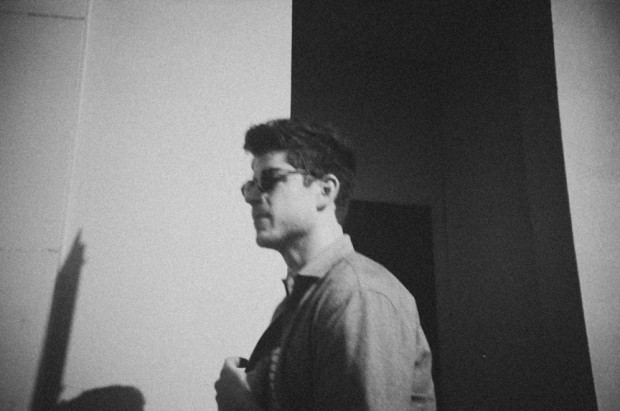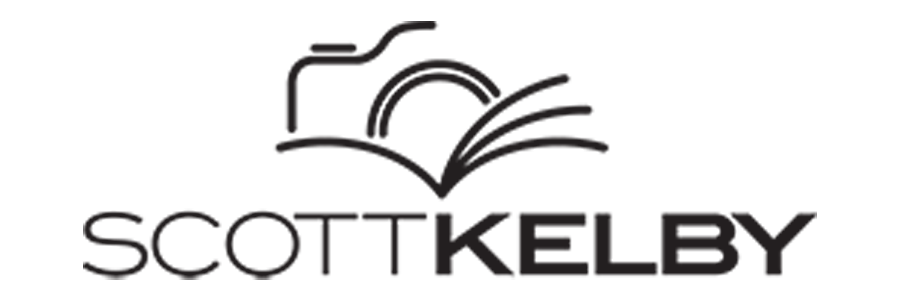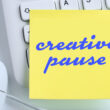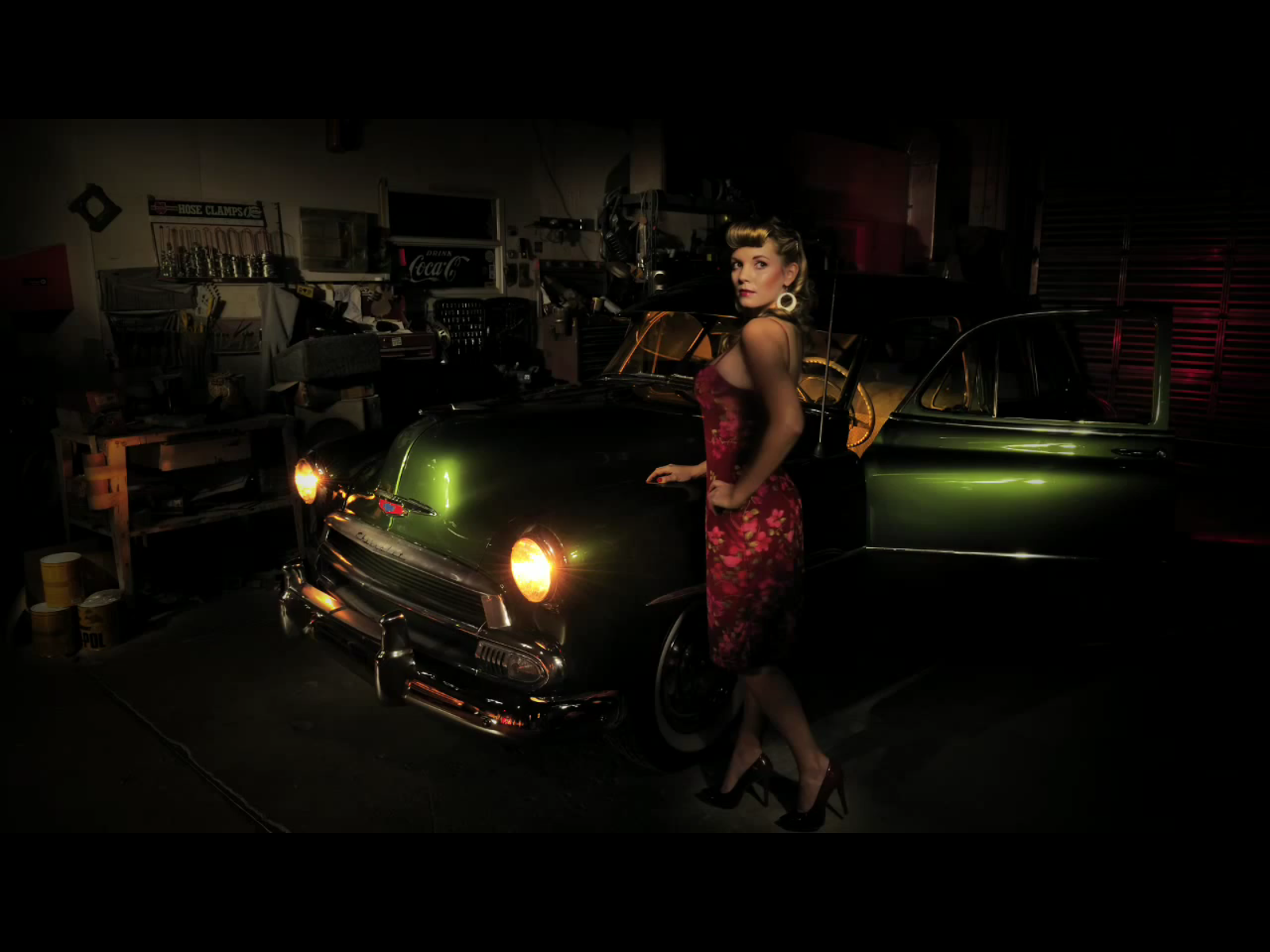
Photo by Eric Ryan Anderson in Portland, Maine, via disposable camera
Under a fire escape in Brooklyn across from Prospect Park, looking up at what seems to be unending row of century-old brownstones â” this is where I come to think, to reflect, to rest â” to imagine. I guess I'll never be able to have that thumbing through B&H Catalogs or lusting through the aisles of Calumet.
This is not a post about gear or Photoshop tricks or a wide angle lens for your iPhone. In fact, I actually avoid gear talk unless absolutely necessary. I want to know how to create compelling images, how to properly capture beautiful scenes and portraits, but ultimately, I don't necessarily want to know how someone else did.
I want to know that you made something beautiful; that you contributed to the collective whole, that you are spending your time to make a difference â” to enlighten, to edify, to redeem, and to make the world more whole. But I don't necessarily need you to ruin the mystery of the process that preceded it. I know this is a place I potentially risk a credibility loss, but I'm a bit more comfortable with that than I once was.
When more of my time was occupied by making music than anything visual, I loved gear. I loved to think that a hand-wired Class-A Greenback AC30 was my access point, finally, to my secret garden of personal sound. That it would give me my particular "voice."
To disrupt the idiom, hindsight isn't 20/20 â” it's somewhere closer 20/16 (if glasses taught me anything). And when you have enough separate creative processes (print design, some web work,, photography, videography, writing, music, sound) interrupting your professional career like I have in the last half-decade, an objective, comparative study is much easier to initiate. Of course there's a technical competency (and years of sweat and blood in practice) involved in creating anything of value, but I'm reacting against the idea that the argument goes both ways.
Music has always been an important part of my life. Mom sang in the choir when I grew up, and early on had me doing the same. Dad was a trumpet player and had studied performance at the university. In 9th Grade, he taught me how to play a G chord, along with the sustained hammer-on Bob Dylan adds redundantly under his harmonica drone.
I didn't take guitar lessons (save a few jazz chord introductions years later), on a blind effort (even the blindness itself was blind) my own sense of direction, my particular taste, and really what I could accomplish with a few triads.
My vision for making music was of course constrained by the parameters of physical ability and mere mental understanding of music theory, but what didn't propel me was a desire to remain within parameters and discover new meanings insideâ” what propelled me was the desire for the dissolution of parameters, and to know what could be possible outside the walls. Parameters kept me moving forward because what exploration meant was overcoming them. It was about imagining new musical worlds â” worlds that were specifically mine.
What I don't have is any tips about upgrading your lens arsenal (i.e. whether the II series is better than the I), Manfrotto vs. Gitzo, my 35 foot Profoto Octabox, firmware updates, or even how much I love photography, because honestly I love photography a lot less than what led me into using a camera in the first place.
I also have no intention of providing anything profound or revolutionary or subversive as advice. What I hope to provide is why I do what I do (regardless of whether or not you even know what that is), and how it is one of the few static pieces of my life. The methods change, the parameters always move with the process, but the motive is what I hope to show as the highest importance.
Why is our world beautiful, and what are we supposed to do about it?
Why is our world ugly, and what are we supposed to do about it?
"We need imagination to cope with that." –N.T. Wright
What is higher in our value system? Is it the ability to technically light, execute, and digitally process a photograph, the ability to illustrate with the pen tool in Illustrator, the capacity to assemble a complex 30-minute Final Cut Timeline in a half day?
Or is it more important that we have inability? To admit that struggle is real, and must be overcome somehow â” and to allow that to be fuel for what we create.
I've been thinking quite a bit about imagination lately, and what it is I'm doing to actually strengthen my own, and, what it actually exists for. A big question I have is, am I becoming more human â” more whole â” and adding anything to the collective consciousness â” by using my own brand and cultivating it and, begging it to grow.
The inverse question is this: am I only watering it down by consuming information, things, and buying into the myth that more makes more; as, finally, an entry point into success; believing that success is not about imagination or concepts or my family but about money and getting published and having a cool portfolio and rubbing shoulders.
I read a book called War of Art by Steven Pressfield not too long ago. My reaction to it was as crippling as everyone else's: I was convicted. I was mad at myself. I was guilty. I was guilted into wanting to become better because I was apparently far too lazy for anyone's good. I was so ready to do more stuff. Into typing more words into an email. And I was creating in the way that I consumed. And my work was more prolific, but it was getting worse qualitatively.
Although innocent and motivating as literature, it was compounding what prevented me from doing my best work, and from seeking the one thing that actually is uniquely me, and my vision: imagining.
I posted the question I've been thinking about the last month on Twitter a few nights ago. "What disciplines are you cultivating to strengthen your imagination?" The question was multi-faceted, as most things are. Here's how I would break it down this way into its hierarchical forms:
Do you believe imagination is important?
Do you have a vision for the world as it ought to be?
Are you scared of what's not completely apparent and in need of discovery?
Are you imagining anything at all?
What is it like to imagine?
How are you working to imagine better â” more fully?
Of course the spirit in which it was said was rhetorical, and ultimately I have been asking myself these things, and hoping others would as well.
This is the starting point for why any of us do what we do. This work is not about who can wield a camera better than another. The point is, are your ideas original? Are they repeated concepts? Are you making anything new? Are you working to make the world new? How can we imagine that new world, and what opportunity do each of us individually and collectively have in it?
Why is the world beautiful, and what do we do about it?
Why is the world ugly, and what do we do about it?
We need imagination.
The past five years have been characterized by a certain healthy struggle that I think any freelancer can describe, and that description is that this entire thing is paradox. The ultimate freedom of it and the complete necessity for self-erected boundaries; the need for cosmos and the need for chaos and how they duel and how they go hand in hand. The war of Chronos (sequential time) and Kairos (appointed time), and how both are needed and both are enemies and both are allies and they are enemies and they are allies and so on.
Long story short, I began my time as an adult in New York as a musician, which transferred into a broader role doing a confluence of visual and aural creative projects, back into print design (where I developed the love for the creative process not too dissimilar from music), on into photography (I began freelancing in 2007), and now into film, which I think closes the circle of my love for narrative, for imagination, and how to express that in ways that actually makes a difference in the lives of people, and leaves the earth a more whole place. I have no mislead awareness that I'm actually achieving that high thing, but it doesn't elude my thoughts.
Recently I finished the largest project I've ever taken on alone. When I moved back to New York at the beginning of the year, my vision was in film (or really simply, video) and in the broader/specific (more paradox!) way film allows you to explore every facet of human experience like no other form allows (not a bad mark on any other trade). I decided in March to take on a series of eight commercials for a company based in Manhattan specializing in a type of boutique bags, 8 in sum, featuring a number of New York creative professionals, all who use a camera to accomplish their unique, storytelling vision.
It was a monster of a project that took months of pre-production and scheduling and rentals and permits and cars, and even now the pieces to me aren't incredibly stunning, and I often question the difference they make for society. However, it reminded me that imagination must be cultivated, and that the parameters for it are real, and the choices we make daily to work and create something new and interesting and affective must be rooted in hard work, consistency, and rhythm.
Wake up at 5:30am. Make a french press. Sit down and write for hours. Make a French Press. Sit down and write for hours.
Any author will tell you the importance of force in work. Inspiration doesn't arrive with consistency. Inspiration doesn't build itself under your fingers into a wall of bricks. It's wind, and we have to be like flags.
One of the most difficult aspects of being a freelancer is the decisions about how to best use the time commodity. What is it for? Who is it for? The ultimate question being, What is actually valuable and noble, and how do I, in this particular context, with these particular social, historical, creative, and technical skills embody that?
Via Media is a particular line of thought I hope to subscribe to consistently.
At the University, we learned about the concept in the context of Christianity â” that in all the dissension and splits in the church history, that certain sects held to a philosophy of the "middle way" or "everything in balance." I do believe everything about our existence is intended for balance and harmony, but it wasn't until I began this solitary journey into a freelance creative professional (or whatever language category is needed to feel comfortable) that I really began to understand its necessity.
Freelancing really is about paradox, choice, and value, and the balance of those things alongside people, and time. And without that understanding, I wouldn't be able to ask the question about how I'm supposed to imagine a better world â” particularly a better me. I would be tossed and turned by the thousands of impulses and external factors that effect each day (especially in New York â” phew). Without my own choice each day to wake up, turn on the coffee water to boil, and get my hands dirty with work, no work would be done, and I would not afford rent, and I'd be fishing somewhere on the coast of Texas (which sounds pretty great until about week three I imagine).
I think it's very important to understand our own fears, our own struggles, and how they are opportunities for imagination.
I tend to have a fear of being one-dimensional. Of lacking balance; of becoming too focused on one thing that all the others lose their importance in my life. Of not understanding the beauty and complexity of a person, a situation, or an idea. I can let myself decay in it, leading to a low self-esteem and admittance to the ultimate inability to achieve that perfect ideal, or I can use this to work hard to understand, to represent, and to create things that are multifaceted that not only help others, but that work to make the world whole.
My final thought is not a thought as much as it is a question I ask myself every day â” what am I doing to make the world better (I know it sounds lofty), and what can I practically do in my own rhythms and practices to work toward that?
How do I work to strengthen my imagination so that I can better perceive of a world that ought to be, and what role do I have in that as a person â” whether or not I'm a photographer?
Being creative is about being more fully human, and imagining is about incarnating that.
You can see more of Andrew’s work at AndrewRyanShepherd.com, keep up with him on his blog, and follow him on Twitter




Thanks for sharing Andrew. Beautifully written.
Great read … very reflective, and it went quite well with a “French p ress” :)
Thanks for the personal outlook.
I really enjoyed the esoteric read. In fact, I admire your courage. Thanks
Mike
Inspirational guest blog today!
Mr. Shepherd is indeed a paradoxical Shepherd of his words and thoughts. To shepherd one must let go and let his/iher ideas to wander and explore the feeding grounds. Only then will th shepherd know when to break a leg of a wanderikng sheep, only to instructs the sheep, “stay close to the source”, ie. imagination.
When I consider creation, motivated my imagination., my heart expanded with laughter. As I understand God, He whispers imagination and all creatures changes.
Ken in KY
Great post Andrew!Â
I am enough of an artist to draw freely upon my imagination. Imagination is more important than knowledge. Knowledge is limited. Imagination encircles the world.~Albert Einstein
This is great. I had a client who is a budding photog call me yesterday asking for help with her lighting. She started telling me about the shot she was going to be doing, and she had the vision all planned out, but was nervous about getting the lighting right. I had to stop her mid-conversation to let her know how awesome I thought it was that she has the most important thing in photography figured out: vision. I told her how there are so many technically excellent photographers who take pictures of nothing interesting, and that there is no value in that! The technical skills can be learned and they will evolve, but a creative mind is so much more difficult to teach to somebody, let alone nourish! Thanks for sharing Mr. Shepherd.
Thank you for an intriguing read.
~Kristina
This article really hit home for me personally. Thanks for sharing your heart Andrew.
Way to go, Shep. This was a fantastic read.
My grandpa told me on his death bed (literally – yellowed, hallow, skin draped on bones) that balance is both essential and unbearably difficult, but to achieve balance is the sweet spot we all long for. i figure if he felt he was still working toward a balanced life at 83 then it’s more iterative than clearly defined. with that being said, i think you’re iterating quite well :) thanks for the encouraging words and challenging thoughts in this post Andrew.Â
Wow, thanks for putting this together. There’s a lot here I want to remember and act on.
Well said!